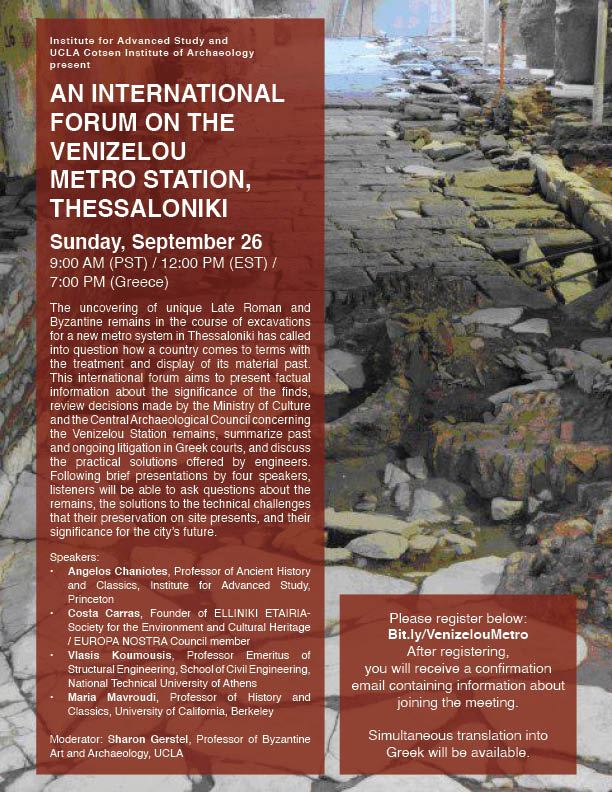« On the occasion of the millinery anniversary of the dormition of St. Symeon, the New Theologian (1022-2022), the Volos Academy for Theological Studies organizes an international conference to commemorate his personality, thought, and contribution to Orthodox theology and spirituality, which will take place in Volos, Greece, in a physical form, from 26 to 29 May 2022, in compliance with all the enforced by the European and state sanitary measures.
This conference aims to bring together scholars who have made important contributions to the study of the work of St. Symeon the New Theologian and its reception from the philosophical, historical, philological and theological points of view. The following statement offers some possible topics but does not intend to exclude alternative issues:
The renewed interest in the study of the work and the thought of St. Symeon during the last decades has highlighted a number of both timeless and topical issues concerning, one way or another, the entire Christian world. The relationship between institution and charisma or sacraments and asceticism; the understanding of faith and doctrinal teaching as the content of personal consciousness; the anthropology of deification and the emergence of the Christian subject, as well as St. Symeon’s commitment to the ecclesial body are only some of the aspects of the relevant and on-going discussion. To rearrange these issues based on the critical and prophetic character of theology demands a creative and fruitful reflection, with the self-evident inclusion of the particularities of our times, in the perspective of the authentic experience of the life in Christ in the context of our current post-modern reality.
Committed speakers include: Theophilos Ambatzidis (Volos Academy), Eirini Afentoulidou (Austrian Academy of Sciences, Vienna), Paul Argárate (Universität Graz), Sabino Chialà (Community of Bose, Italy), Marie-Hélène Congourdeau (CNRS, Paris), Barbara Crostini-Lappin (Uppsala University), Paul Gavrilyuk (Founding President of IOTA, St. Thomas University, MN, USA), Athanasios Markopoulos (University of Athens), Dimitrios Moschos (University of Athens), Dimitrios Oulis (University of Athens), Symeon Paschalidis (University of Thessaloniki), István Perczel (Central European University, Budapest/Vienna), Basilio Petrà (Facoltà teologica dell’Italia centrale, Florence), Aikaterini Tsalampouni (University of Thessaloniki), Vasilios Tsigkos (University of Thessaloniki), Stavros Yagkazoglou (University of Athens), Panayiotis Yfantis (University of Thessaloniki)
Junior and early career scholars are, therefore, invited to submit proposals for short papers (15 min.) which preferably should be related to one of the thematic axes of the conference. Provisional title, abstract (max. 350 words) and a concise CV (max. 200 words) should be submitted to Dr. Nikos Kouremenos (nkouremenos@acadimia.org) by March 4, 2022. All proposals will be evaluated by a scientific committee. The working languages of the conference are English and Greek (with a simultaneous translation to be provided). The decision of acceptance will be communicated before the 1st of April 2022. Volos Academy will provide full accommodation to all accepted speakers – unfortunately, though, travel expenses will not be covered. After the conference, presenters will be invited to rework their presentations towards the publication of the conference proceedings, which will be assessed through a peer-review procedure. »


